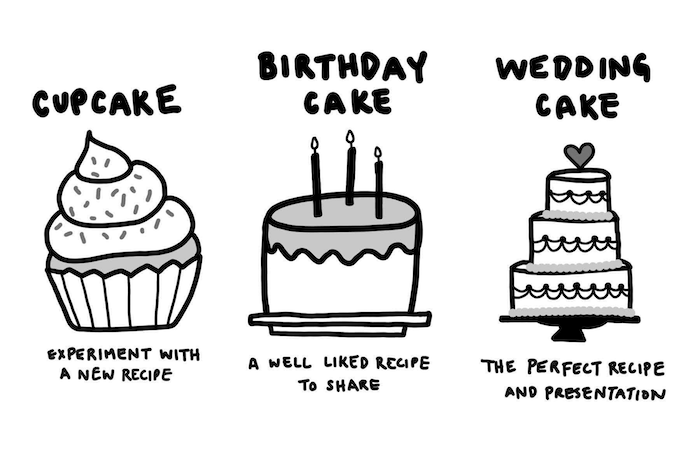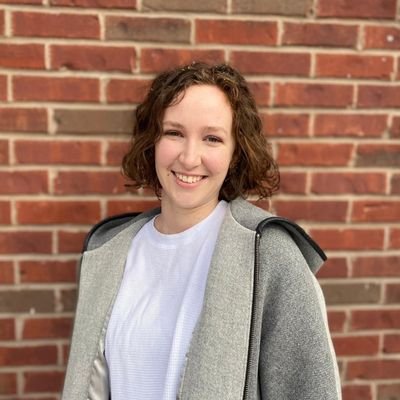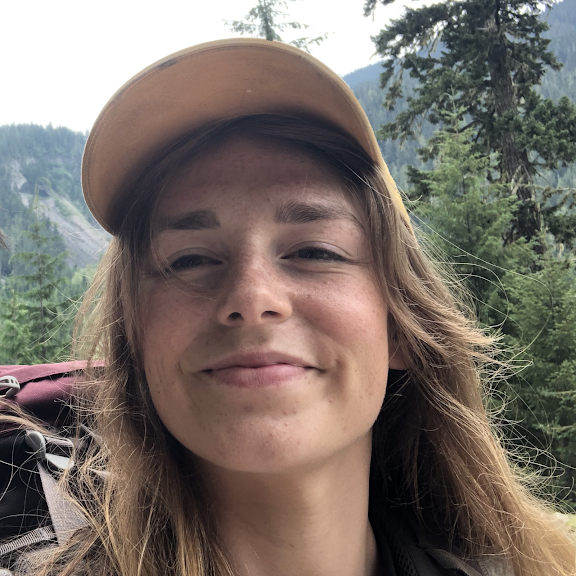

Your First Week at Outschool
by Caley Brock and Ellie Badun
After a morning walk, you take your shoes off, pour a cup of steaming coffee, and have a seat at your home office. Some excitement kicks in because it’s time to turn on your brand new MacBook Pro, and login to Zoom to meet with your new manager. It’s the day you’ve been waiting for - your first day as an Outschool engineer!
Onboarding to a new job can be a big change - new teammates, tech stack, working norms, and culture. As an engineering manager, I’m currently onboarding two new engineers (and was onboarded as an engineer myself just last year). In order to help paint this picture of what this transition looks like at Outschool, I’m going to share some of our onboarding strategy, and then talk to one of our newest engineers about her experience.
Onboard for Success
Whether we’re bringing on someone early in their career or folks who have been working remotely for years, our goal when we onboard new hires is to set them up for success. We want them to feel valued, supported, and have access to the tools, knowledge, and people they need to do their job. Here’s what that looks like for us.
Connecting People
The first week especially consists of meeting and working with a ton of new people, but there is a core onboarding team who are hands-on during the first month.
- People Ops Contact - this person is the go-to for all things HR, paperwork, benefits, expenses, and a friendly face.
- Manager - that’s me (or another manager)! I’m ultimately responsible for supporting my new team member’s success, and will be here to remove any blockers, be a guide through the process, and find first tasks.
- Engineering Onboarding Buddy - go-to person for pairing, learning the ropes of the system, setting up a dev environment, and deploying code.
- Outschool Onboarding Buddy - someone outside of engineering to get to know more about other business units and Outschool culture.
- Pod - Outschool multidisciplinary development teams are called pods, and consist of engineering, design, product, data, and research. Pods meet new teammates on their first or second day.
Introducing Tools
Before start dates, we ship engineers a computer, keyboard, and trackpad, as well as some Outschool swag. We also want to make sure your home office is comfortable and productive so a home office budget is available to get whatever may be missing.
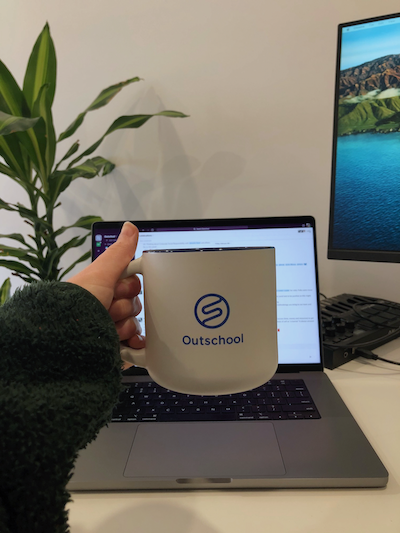
The first few days will include getting into and comfortable with all the tools and accounts we use in engineering. We have a checklist of these to help keep track, and our IT help desk partners are ready to help if anything goes wrong.
Relevant Knowledge
The nature of an engineering role is that there is always more knowledge to gain, even if you’ve been in a role for years. So onboarding needs to be focused on the highest priority and relevant learnings. We standardize our onboarding guides to help engineers prioritize what to learn.
- Orientation call: Your manager will have a quick call with you to go over your first week. This can happen on your first day, or you can choose to have the call the week before you start to walk you through this plan in case you’d like a little preview or have questions.
- Onboarding deck: Each new Outschool employee gets a custom onboarding slide deck introducing the company values, your team, and helpful links in your first few days.
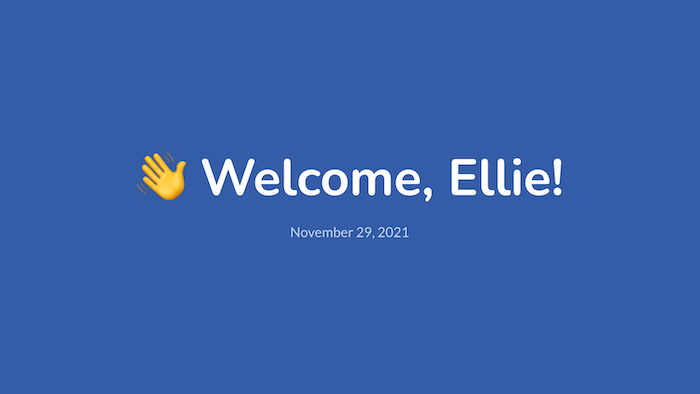
- Jira checklist: Each engineer gets a Jira ticket with an onboarding checklist. This includes all our priorities and expectations for the first day, week, and month.
- Development documentation: Local environment setup is done using a setup script, but Notion contains documentation on how to run the app locally, deploy, and MR expectations.
Your First Ticket
Once the tools and accounts are set up, engineering onboarding buddies will pair on a relatively small ticket at some point in the first week. For those new to the stack, this is a great opportunity to get into the code and learn about the unknown. I was more experienced with Javascript, so for me the focus was about learning the processes and norms of deploying code at Outschool: pairing on Tuple, branch naming conventions, testing expectations, merge request norms, and how to join the merge train.
As with any codebase, there are some things that aren’t clear at first glance, that we know can get better. This is why pairing and having an engineering buddy is so important during onboarding. They can help answer questions that come up like “why do we use mocha in some places and jest in others?”. It’s also an opportunity to remix our documentation (or code!) to make it more clear for the next person.
As the month went on, I felt more confident in my knowledge and took on bigger tickets, doing less onboarding-specific tasks and integrating directly with my pod’s work.
Meet Ellie
This process is always being remixed, even in the few months in between my start date and Ellie’s start date. Ellie is one of our newest engineers, and I asked her a bit about what this experience was like for her.
Caley: Tell me about yourself and why you joined Outschool.
Ellie: Well, I recently graduated university and I was looking for my first real job out of school. I had completed the co-op program during school, so I had an idea of what I was looking for. I knew I wanted to work for a company with a mission statement that I could get behind. I wanted a job with a good culture fit where I would be supported and challenged. I also wanted a remote role to have some flexibility with my living situation, plus a job that would be developing with a modern stack so I could get experience with some popular technologies. I actually met a Outschool recruiter at a digital career fair and the company checked all my boxes, so I pursued the role.
Caley: What was your highlight from your first week?
Ellie: I really thought that everybody I met wanted to see me succeed here. One of the core values at Outschool is to bring others in and I felt like a member of the team right away. Between my two buddies and my manager, I had a place to ask all my questions about work, the company, culture, everything. There was no pressure to start pushing code right away - the first week was full of reading documents and meeting people. I was welcomed with lots of friendly slack messages, not just from my pod mates but people from across the company too. Connecting with my team and the company as a whole was a big highlight from the first week.
Caley: What’s something you learned or worked on during onboarding?
Ellie: Something that I learned during onboarding was the concept of a cupcake! At Outschool, there is a focus of creating a small deliverable and then iterating on it with feedback, rather than working on a large project that gives no value until it is done. The concept of a cupcake drives how work is done at Outschool: it starts with a simple project (cupcake), and it is scaled up in complexity and features (birthday cake) using feedback from users. My first tickets were small chunks of work – adding a link in the nav bar, handling null values gracefully. My first project was adding a ledger table in a dashboard view – it had been requested by the HR team so they would not have to manually make reports to send to partners. All of these tickets were iterations on existing features. This kind of work flow helps me see the big picture of features, and lets us be creative and not hung up on making “perfect” work, as things are always changing.
Caley: On top of this being your first engineering job, we’re fully remote. How has that experience been for you?
Ellie: I have had a generally positive experience working remotely. Initially, I was split on remote work. On one hand, I was worried about feeling isolated and not getting to know my teammates. For me, being comfortable with the people you work with directly is important to be able to ask questions and get work done efficiently. On the other hand, flexibility! No commute! Fresh coffee! Sweatpants! Quite a few perks from being able to work at home.
I found that it was surprisingly easy to feel comfortable with my teammates (refer to Q2!). A few weeks after starting, we had TWO virtual pizza party trivia events – one for the pod and another for the whole engineering team. Beyond getting to know the engineering team, I also joined the #donut-pairings channel which pairs you with another Outschool employee at random every two weeks for a casual chat. This has been great for meeting people I wouldn’t have otherwise spoken to and has really helped me feel connected. Plus, if I do miss working in an office, there is a monthly coworking budget I can dip into.
Caley: As a manager, it’s nice to see this process get better as we hire more and more. How have you seen us remix onboarding?
Ellie: A great thing about onboarding was being able to contribute to the docs to make the process easier for the next person! When setting up my dev environment, I had to download an extra package to get it working properly on a mac with an M1 chip. I made a note in the onboarding slack channel, and was encouraged to update the script. It was exciting to get a chance to contribute right away.
Similarly, after my first week, my buddy and manager asked about my thoughts on the onboarding process. I mentioned how I felt that there were a lot of team-specific terms that I didn’t know, and my manager suggested I make a glossary to document the terms and their meaning. I added a few words to start with, and team members filled out the definitions. We now have an ever-growing pod glossary in Notion that will hopefully make onboarding for the next new hire easier.
Caley: Now that you’re more settled into your role, what are you excited about at Outschool?
Ellie: I’m excited to start working on some larger projects! Most of my onboarding tasks have been bite size tickets to get me familiar with the codebase, so I’m ready to tackle some larger things! There are some exciting goals for my team this year and I would really like to help make those happen. I am also excited to use my professional development budget on courses to continue my web development learning. Besides that, onboarding other engineers is also something I’m excited to do. There seem to be lots of folks onboarding and I, having just gone through the process myself, am excited for them!
Caley: Well, we’re thrilled to have you here, Ellie!
Ellie: Thank you! Thrilled to be here.
—-
If you’re interested in joining our team, yes, we’re hiring - check out our open job postings and our blog post about the hiring process. We look forward to meeting you!
